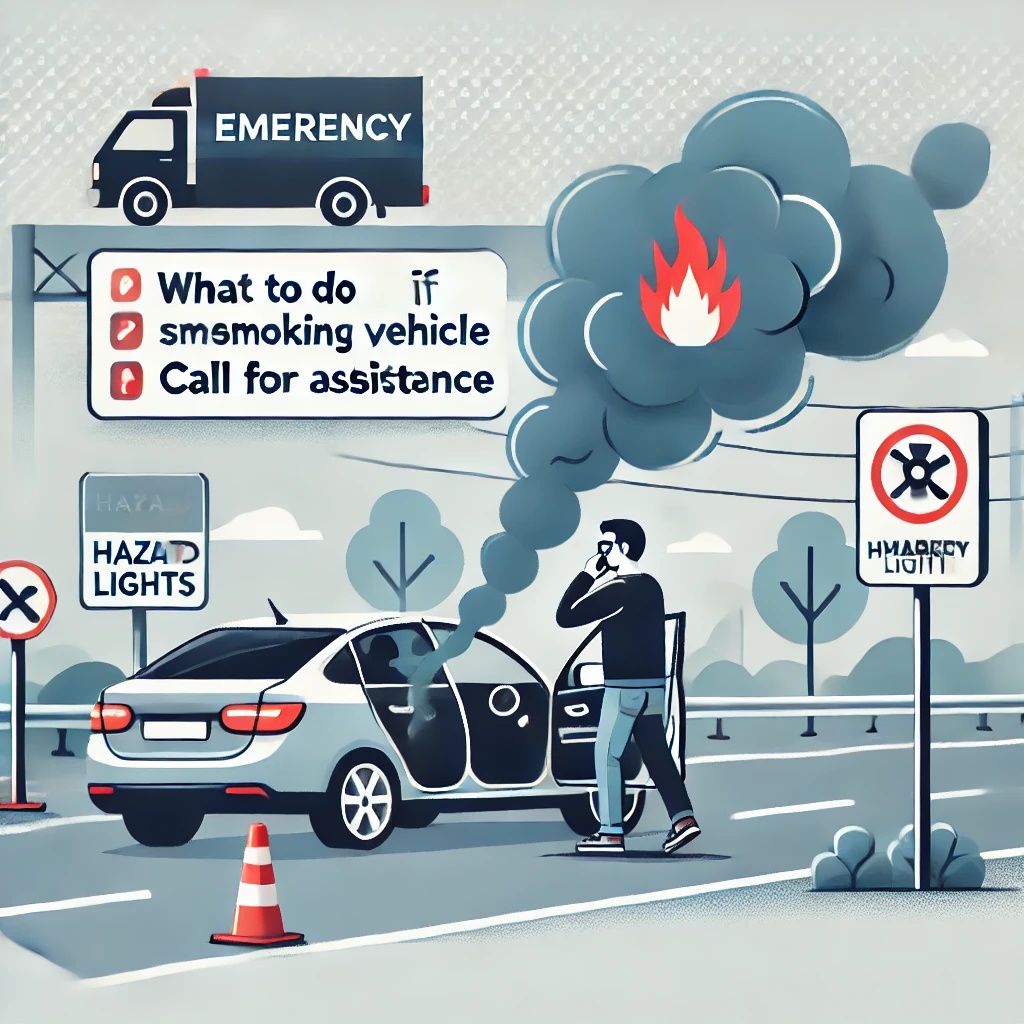What to Do If Your Vehicle Emits Smoke?

Vehicles, as motorized transport, can occasionally experience mechanical issues, engine problems, or temperature-related issues. One such issue is smoke coming from your vehicle. This usually indicates a problem with the engine or exhaust system. However, the color and intensity of the smoke can provide crucial clues about the nature of the issue. So, what should you do if your vehicle emits smoke? Here’s a step-by-step guide on what to do:
1. Identify the Color and Intensity of the Smoke
The color of the smoke provides important information about the potential issue with your vehicle.
-
White Smoke: If white smoke starts emitting after the engine has warmed up, it usually indicates an issue with the cooling system. The coolant may be burning or leaking into the cylinders. This can lead to more serious problems within the engine, so you should stop immediately and seek help.
-
Blue Smoke: Blue smoke occurs when engine oil is burning. This could be due to leaks in the piston rings or valve seals, causing oil to burn. This can lead to long-term damage to your engine, so you should head to a service center right away.
-
Black Smoke: Black smoke is caused by excess fuel burning. This may mean an issue with the fuel injection system or air filter. It indicates that your engine is not operating efficiently and consuming too much fuel.
-
Vapor or Thin White Smoke (Cold Weather): If your vehicle is started in cold weather and immediately emits white smoke, this could be normal. The coolant evaporates due to temperature differences. However, if the smoke continues once the engine warms up, this could be a sign of a problem.
2. Stop the Vehicle Immediately
If smoke begins to emit from your vehicle unexpectedly, the first thing you should do is stop the vehicle in a safe location. Be cautious when stopping, as the engine temperature could have risen excessively, and after stopping, there might be a fire risk. If a fire starts, it can be extremely dangerous.
- Find a safe area: Always try to choose a safe area when you stop. If the smoke is thick, pull over and turn off the engine.
3. Keep the Engine Off and Let It Cool
Since the engine could be overheated, it’s essential to let it cool down. By keeping the engine off, you can minimize the effect of evaporating liquids and smoke. After waiting a while, you can try starting the engine again. However, if the smoke persists, avoid starting the engine.
4. Seek Help Before Intervening
The presence of smoke usually indicates a serious issue. A vehicle's engine is a complex system, so it should be examined by professionals. If your vehicle is under warranty, the best course of action is to seek help from a service center authorized by your car’s brand. If the warranty has expired, you will need to take the vehicle to a reliable mechanic.
5. Avoid Continuing to Drive the Vehicle
If you cannot immediately determine the cause of the smoke, and you suspect an engine issue, it is very risky to continue driving. Especially if there is an oil leak or other serious issue, continuing to drive could result in total engine failure.
6. Request Roadside Assistance and a Tow
If you're in a location where technical assistance is difficult to access, call a roadside assistance service and have your vehicle towed to the nearest service. Towing your vehicle helps prevent further damage and allows you to get professional help.
7. Maintenance and Prevention
Smoke from the vehicle is often the result of neglected maintenance. Regular oil changes, air filter cleaning, exhaust system checks, and coolant monitoring can ensure the engine operates smoothly. Keeping up with regular vehicle maintenance is the best way to prevent these types of issues.
Conclusion
Smoke coming from your vehicle indicates that the engine is signaling a malfunction, and you should take this seriously. White, blue, or black smoke all indicate different issues. Regardless of the situation, stop your vehicle immediately and wait in a safe area. Depending on the severity, seek professional help and have your vehicle taken to a service center. Remember, even minor issues in your vehicle can lead to major problems in the long term.










